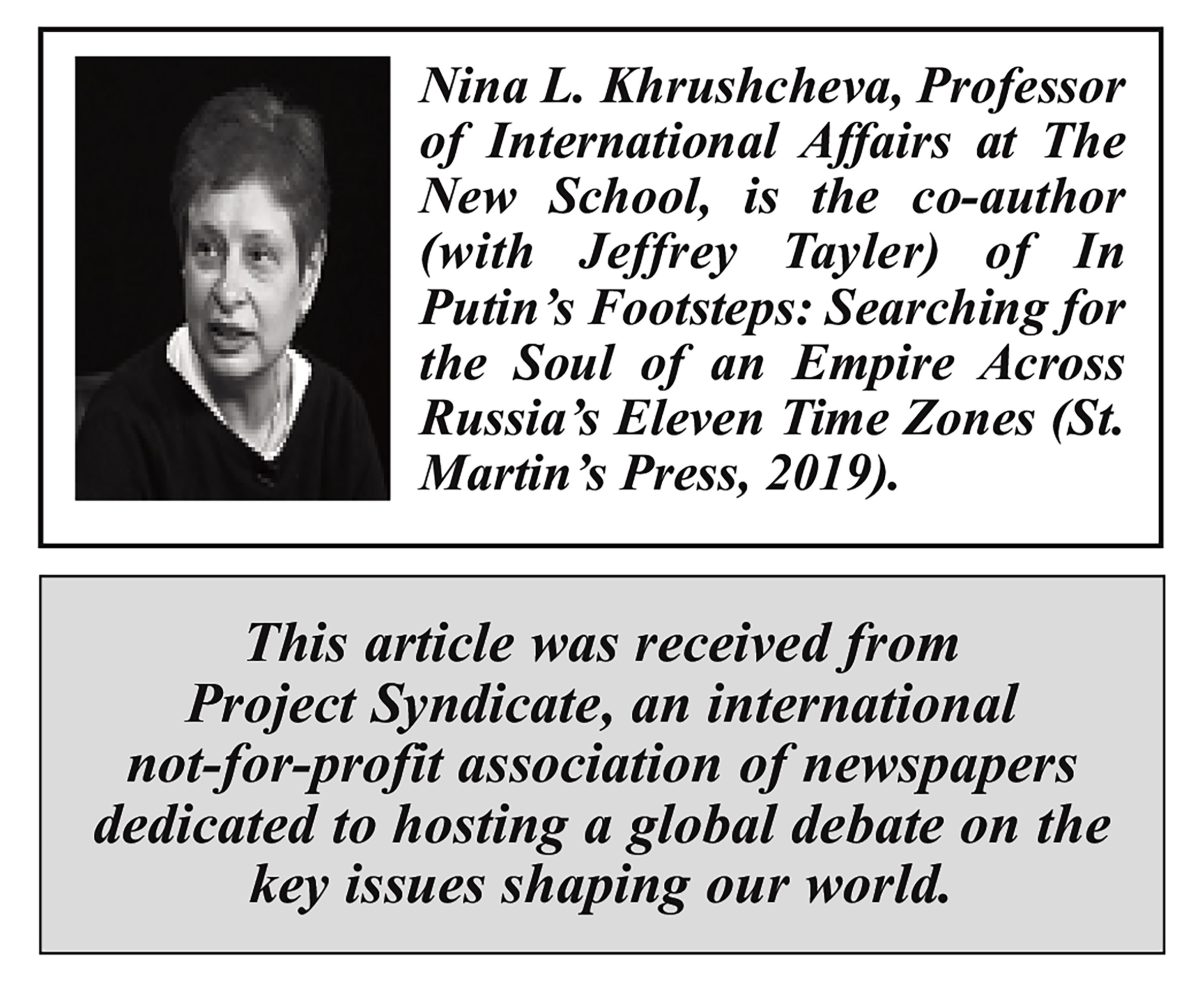MOSCOW – This is not strictly a review of Sergey Radchenko’s recent book, To Run the World: The Kremlin’s Cold War Bid for Global Power. Rather, it is an invitation to find in the book a fresh take on the sources of Russian foreign-policy conduct, in line with the American diplomat George F. Kennan’s famous 1947 assessment of the “sources of Soviet conduct.” By focusing on the logic driving Soviet leaders’ foreign-policy decisions, Radchenko hopes to shed light on Russian President Vladimir Putin’s often-bloody quest to reclaim Russia’s status as a great power on par with the United States.
From Joseph Stalin to Mikhail Gorbachev, Soviet leaders shared Putin’s desire for “great power” prestige. Leonid Brezhnev, who succeeded Nikita Khrushchev in 1964, envisioned a world “co-managed” by a Soviet Union and US that respected each other as “equals.” But while the US agreed to an equal relationship on paper, Radchenko explains, the Soviets felt as though they had been “forced into a humiliating position of delinquents, being presently taught by someone who (in all truth) was also not beyond reproach.”
Putin has had a similar experience. Since coming to power nearly a quarter-century ago, he has sought equality with the US-led West. There was a time, for example, when he accepted NATO, and even aspired to Russian membership. But Putin always believed that Russia’s size and historical role in global affairs entitled it to special treatment: Russia is not just another country, and the West should act accordingly. That meant carefully weighing how its decisions might affect Russia’s interests and risk perceptions.
The West felt otherwise. When NATO admitted three former Soviet republics (Estonia, Latvia, and Lithuania) in 2004, Putin began to view the Alliance as an existential threat. But it was the prospect of Ukraine and Georgia joining NATO that pushed Putin over the edge: it was a key motive for Russia’s 2008 invasion of Georgia.
This reaction might seem excessive, but it is quintessentially Russian. As Radchenko argues, Putin – like all Soviet leaders – shares a fundamental fear with Rodion Raskolnikov, the protagonist in Fyodor Dostoyevsky’s classic Crime and Punishment: one who does not respond forcefully to life’s humiliations is a “trembling creature,” without rights or interests anyone will protect. Accepting other powers’ neglect, let alone hostility, is simply not an option.
Putin was clear about this from the start. When he assumed the presidency in 2000, he was already warning the West that, if it pushed Russia away, “we will be forced to find allies and reinforce ourselves. What else can we do?” So, when the US openly supported Ukraine’s 2014 Maidan Revolution, which brought about the ouster of its pro-Russian president, Viktor Yanukovych, Russia annexed Crimea.
US President Barack Obama’s quip dismissing Russia as a “regional power” only strengthened Putin’s resolve to affirm Russia’s global standing. In 2022, he proved just how serious he was, by launching his full-scale invasion of Ukraine. If the West would not give Russia its due, Putin would defend its interests by force. What else could he do?
So, when the Russian president says that a NATO-Russia war would become unavoidable if the US and the United Kingdom permit Ukraine to fire Western long-range missiles at Russia – as Ukrainian President Volodymyr Zelensky has requested – he should not be dismissed out of hand. While Putin did not overtly threaten to use nuclear weapons – saying only that the changed nature of the conflict would require a specific response, and therefore the Russian nuclear doctrine now will have a lower threshold for action – others in his circle have invoked that specter even more directly.
To be sure, such a response is not guaranteed. As one Washington Post headline recently noted, “Ukraine keeps crossing Russia’s red lines. Putin keeps blinking.” But this thinking can prove dangerous. After all, the Kremlin has always followed a clear escalation formula: it withstands growing pressure for a while, but eventually it snaps, much like a rubber band.
So, Putin’s decision not to respond forcefully to Ukraine’s incursion into Russia’s Kursk region does not mean that he will swallow anything. At a certain point, he will decide – with little regard for the cost – that he has no choice but to prove that he is no “trembling creature.” Missile attacks deep inside Russian territory could well bring him to that point.
Western observers seem largely convinced that Russia would not actually deploy nuclear weapons, because there is no “winning” a nuclear war. But that pesky Dostoyevskyan logic suggests that, for Putin, exposing Russia to nuclear retaliation may well be the price of standing up to those who would seek to subjugate it. Russians writhing in pain from burns and radiation poisoning can at least feel proud that they didn’t back down. Europeans, also burned and poisoned, can calm themselves with thoughts that they didn’t blink.
The West’s willingness to dismiss Putin’s threats as mere bluster runs counter not only to historical experience, but also to its own admonitions that Putin is intent on attacking NATO countries. For example, US President Joe Biden warned in August that Russia will not stop at Ukraine. Even here, however, the West is fundamentally misunderstanding Putin: he would prefer not to engage directly with NATO. The risk is that he will decide that the West has forced his hand.
In 1997, Kennan cautioned that the expansion of NATO “may be expected to inflame” Russia’s “nationalistic, anti-Western, and militaristic tendencies,” as it gave Russians the impression that their prestige – “always uppermost in the Russian mind” – and security interests were being “adversely affected.” But confrontations don’t have to end in a disaster, as Khrushchev demonstrated during the Cuban Missile Crisis in 1992 and Gorbachev with his policies of perestroika (restructuring) when responding to Ronald Reagan’s Strategic Defense Initiative. The challenge for the West is to ensure that the tragic confrontation playing out in Ukraine does not become apocalyptic.
Copyright: Project Syndicate, 2024.










